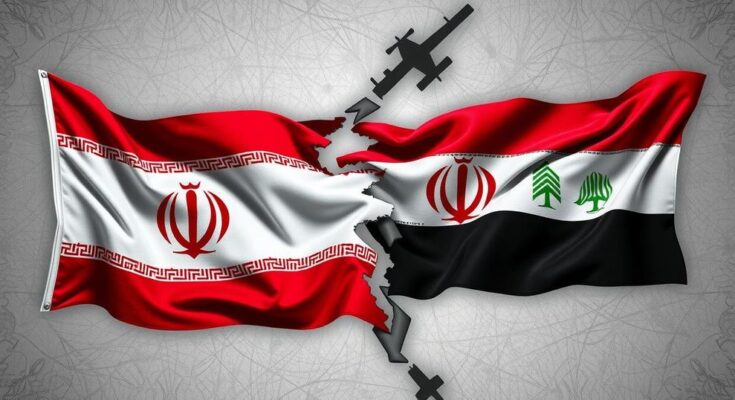Iran and Iraq are moving to open diplomatic channels with Syria’s new administration following the fall of Bashar Al-Assad, emphasizing cooperation on border security and the welfare of Iraqi refugees. While Iraq pledges not to intervene, they warn about the implications of threats to minorities. Iran reaffirmed support for Syria’s right to self-determination as the region adjusts to new political dynamics.
Following the recent ousting of Bashar Al-Assad, Iranian and Iraqi officials are initiating efforts to establish communication with the new Syrian administration. An unnamed Iraqi diplomat emphasized Baghdad’s intention to cooperate with Syria’s transitional government, highlighting issues such as border security, the welfare of Iraqi refugees in Syrian camps, and the protection of Shia shrines. While Iraq maintains it will not interfere in Syria’s internal matters, it warns of potential consequences from threats to Syrian minorities that could spill over into Iraq.
In political discourse, Iraqi analyst Mohamed Nanaa noted that messages had been relayed to Damascus, advocating for a recognition of the new political reality dependent on national consensus among all Syrian factions. Khamis al-Khanjar, leader of the Sovereignty Alliance in Iraq, underscored the need for the Syrian populace to learn from past political mistakes made by Iraq after the fall of Saddam Hussein, cautioning against a continuation of oppressive tactics that disregard the citizenry’s voice.
Iran, after a period of quiet following Assad’s downfall, affirmed the importance of allowing the Syrian people to dictate their future free from foreign interference. The Iranian government has reportedly opened channels with the newly established Syrian leadership, aiming to foster a constructive relationship and avert hostile outcomes. Analysts in Tehran speculate that Assad’s distance from Iranian policies contributed to his regime’s vulnerability and downfall, marking a significant shift in the regional balance of power.
This new context may pave the way for a revised Middle Eastern order, as both Iran and Iraq position themselves to engage with Syria’s evolving political landscape.
The article discusses the immediate ramifications following the downfall of Bashar Al-Assad, who had ruled Syria for over half a century. It outlines the responses of Iraq and Iran, both historical supporters of Assad, as they seek to re-establish connections with the new leadership in Syria. This development occurs amidst broader shifts in regional power dynamics, as various nations navigate the fallout from Assad’s removal and the implications for their own domestic and foreign policies.
In conclusion, the swift change in Syria’s political landscape has prompted proactive engagement from Iraq and Iran, as evidenced by their renewed communication efforts with the new Syrian government. Both countries express a commitment to fostering stability while addressing mutual concerns related to borders and minorities. The situation remains fluid, indicating potential shifts in regional alliances and policies as stakeholders respond to the unfolding realities in Syria.
Original Source: www.newarab.com




